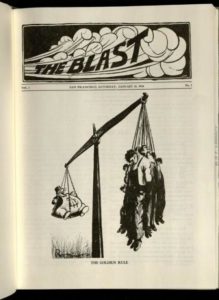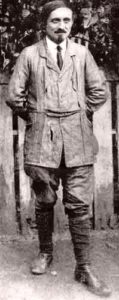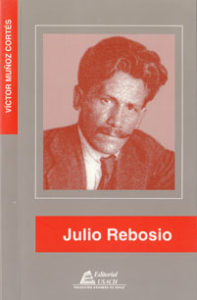Partial online archive of The Blast, an anarchist newspaper published by Alex Berkman for 29 issues 1916-1917, when it was shut down for encouraging resistance to the draft.
Continue reading The Blast
Tag Archives: 1916
Émile Armand (21 texts)
Is the Illegalist Anarchist our Comrade?
Émile Armand (1911)
(Notes: From “L’Illégalist anarchiste, est-il notre camarade?” Paris and Orleans, Editions de “l’en-dehors.” [n.d].Translated for marxists.org by Mitchell Abidor.)
When we consider the thief as such we can’t say that we find him less human than other classes of society. The members of the great criminal gangs have mutual relations that are strongly marked with communism. If they represent a survival from a prior age, we can also consider them as the precursors of a better age in the future. In all cities they know where to address themselves so they’ll be received and hidden. Up to a certain point they show themselves to be generous and prodigal towards those of their milieu. If they consider the rich as their natural enemies, as a legitimate prey — a point of view quite difficult to contradict — a large number of them are animated by the sprit of Robin Hood; when it comes to the poor many thieves show themselves to have a good heart.
(Edward Carpenter: Civilization, its Cause and Cure.)
I am not an enthusiast of illegalism. I am an alegal. Illegalism is a dangerous last resort for he who engages in it, even temporarily, a last resort that should neither be preached nor advocated. But the question I propose to study is not that of asking whether or not an illegal trade is perilous or not, but if the anarchist who earns his daily bread by resorting to trades condemned by the police and tribunals is right or wrong to expect that an anarchist who accepts working for a boss treat him as a comrade, a comrade whose point of view we defend in broad daylight and who we don’t deny when he falls into the grips of the police or the decisions of judges. (Unless he asks us to remain silent about his case)
Continue reading Émile Armand (21 texts)
Cuando la Patria Mata. Historia del Anarquista Julio Rebosio (1914-1920) libro
“Nadie poseía una explicación categórica para juzgar lo que acababa de suceder frente al Nº 729 de la santiaguina calle Copiapó. Ante la mirada expectante de quienes fueran sus amigos, un delgado y moreno cuerpo yacía inerte en las afueras de la casa y taller de un viejo zapatero anarquista. Los vecinos de la humilde construcción, otrora informal y animado punto de encuentro revolucionario, pudieron –imaginamos– aguardar tal como las mujeres y los hombres allí reunidos, alguna respuesta a la sangre que manaba de la tibia cabeza del extinto.”
Continue reading Cuando la Patria Mata. Historia del Anarquista Julio Rebosio (1914-1920) libro
The Philosophy of Atheism
by Emma Goldman
To give an adequate exposition of the Philosophy of Atheism, it would be necessary to go into the historical changes of the belief in a Deity, from its earliest beginning to the present day. But that is not within the scope of the present paper. However, it is not out of place to mention, in passing, that the concept God, Supernatural Power, Spirit, Deity, or in whatever other term the essence of Theism may have found expression, has become more indefinite and obscure in the course of time and progress. In other words, the God idea is growing more impersonal and nebulous in- proportion as the human mind is learning to understand natural phenomena and in the degree that science progressively correlates human and social events.
Continue reading The Philosophy of Atheism



